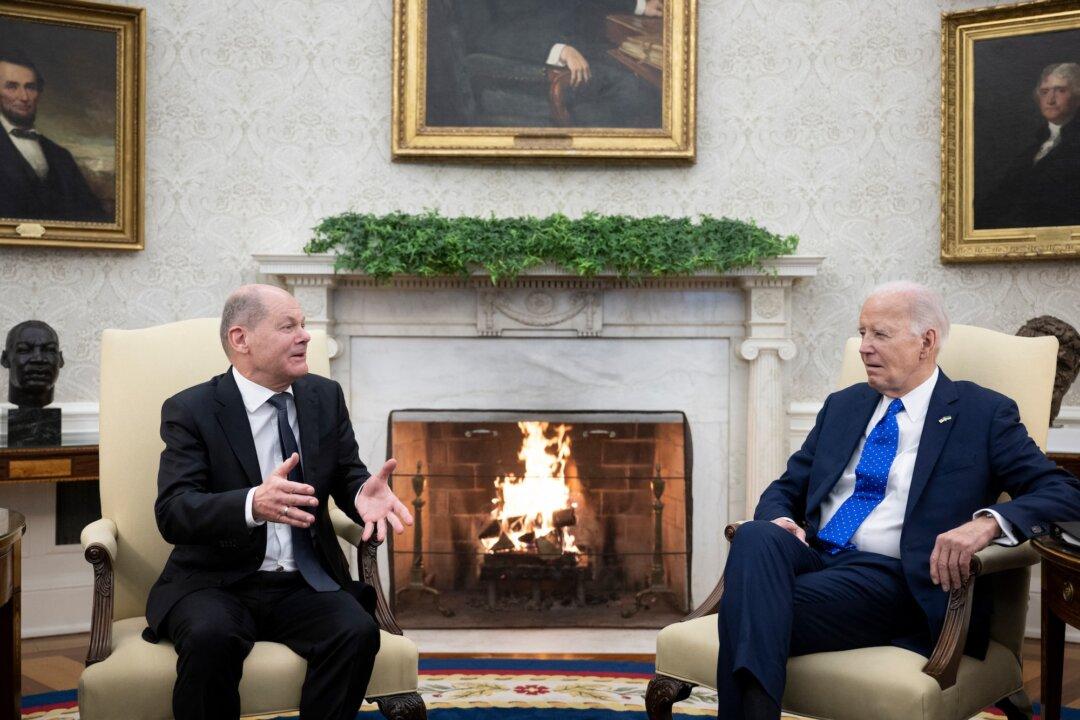President Joe Biden met with German Chancellor Olaf Scholz at the White House on Feb. 9, with both leaders pushing for more U.S. aid to Ukraine, which remains in limbo amid a standoff on Capitol Hill over a border deal that includes foreign assistance.
On Feb. 7, the Senate blocked the Biden-backed border deal—which includes $60 billion in Ukraine aid amid its war with Russia—with the bill failing to garner the 60 votes needed to begin debate.





